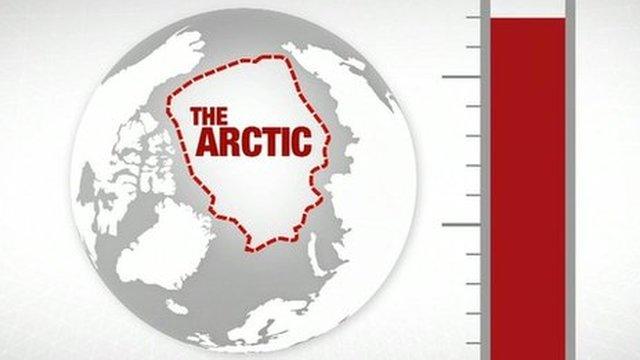COP21: Business needs to act on forests, says Charles
- Published
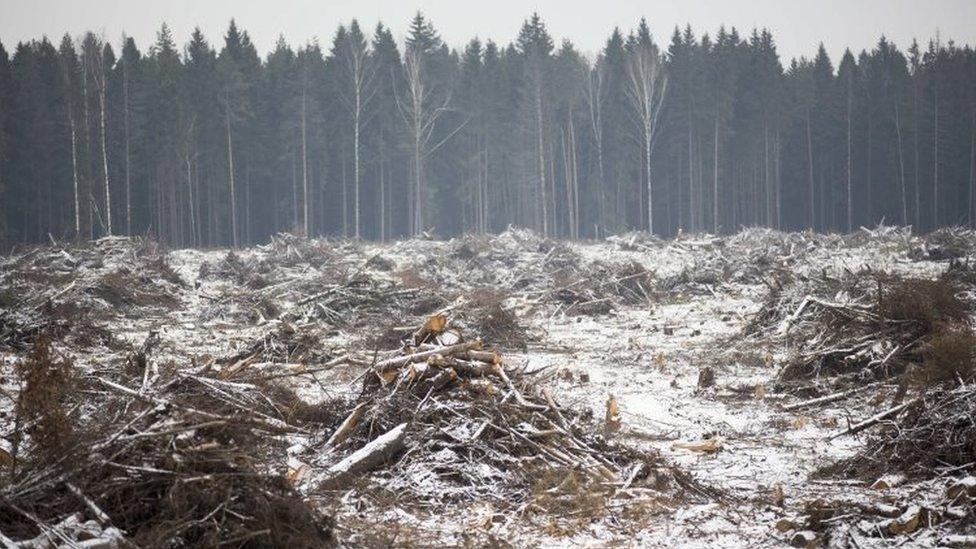
Every year about 12 million hectares (30 million acres) of woodlands are destroyed around the world
Prince Charles has expressed hope that politicians and businesses are starting to act on the need to protect forests.
The Prince of Wales told a meeting at the Paris climate summit that attitudes were beginning to change, with forest protection initiatives being introduced.
But he said too many companies still turned a blind eye to their commercial activities destroying forests.
We are testing the world to destruction, he said.
"It's very simple. We must save our forests," he added. "There is no Plan B to tackle climate change without them."
He said the best way for governments to save forests is to grant legal title to the indigenous people who inhabit them.
"We must do all that we can to support the communities that live within forests. For indigenous peoples, this is a question of the proper safeguarding of their reserves, traditions and cultures."
Prince Charles commended a declaration by 17 government leaders at the Paris summit on the essential role of forests for climate and development.
Carbon sinks
He said forests play a vital role in stabilising the climate by sucking carbon dioxide (CO2) out of the atmosphere and fixing it into soils.
Forests are estimated to hold more CO2 than the atmosphere - yet every year around 12 million hectares are destroyed.
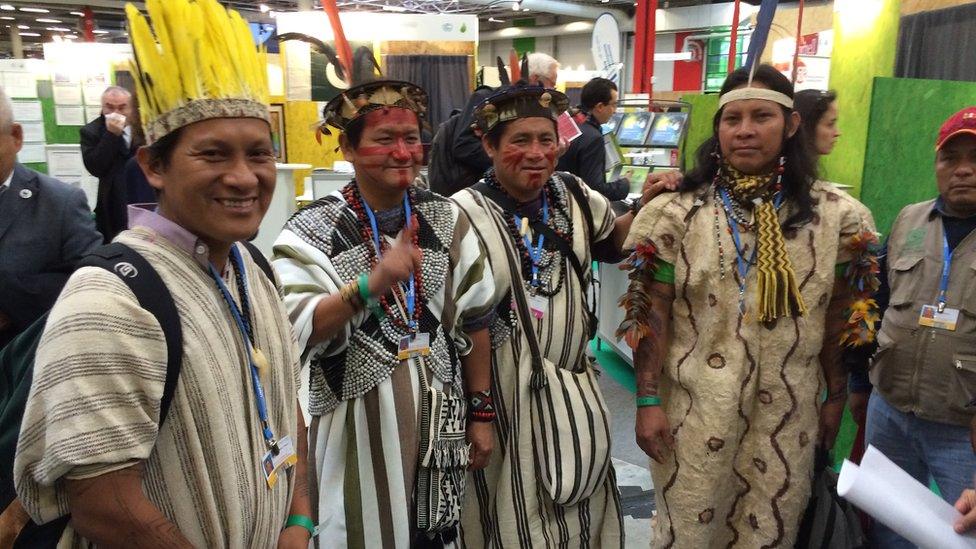
Indigenous leaders at the forest meeting in Paris
The loss of forests accounts for around 12% of carbon emissions caused by human activity, the second biggest source after burning fossil fuels, according to scientific evidence, external.
For some developing nations, deforestation is the largest source of emissions.
Finance concerns
Tuesday's meeting heard that governments must now shift from talk to action.
Forest nations have set up schemes to monitor and protect forests under an internationally negotiated agreement known as REDD+, external.
Prince Charles tells world leaders to think of younger and as yet unborn generations when deciding what to do on climate change
But finance is now needed under that scheme to compensate developing nations for foregoing the profit from cutting their forests.
Andrew Mitchell from the Oxford-based Global Canopy Programme told BBC News that aid flows to countries for forest conservation now total $1bn. That compares with the $135bn value of the industries causing forest destruction, including timber, pulp, beef, soy and palm oil.
He said forests would not be protected by transfer of aid from rich countries to poor countries for preserving trees.
The financial sums needed could only be achieved by ensuring that the cost of forest destruction is factored into the price of goods and food produced from forest regions, he explained.
Other speakers talked about the need to put pressure on major companies to take notice of the impact of their business on forests.
Prince Charles held up Unilever as an example of a business that had committed to end any involvement with deforestation.
The Prince also said forest protection was not enough - the world needed to re-forest deforested lands.
"Given that we have managed to reduce the world's tropical forests so significantly over recent decades (with over 500 million hectares lost since 1950), the restoration of forest landscapes should not be an afterthought - but an equal priority to halting deforestation and degradation."
'Convening power'
Prince Charles' causes receive a mixed reception in the UK media.
But in the Paris meeting he was commended for using his "convening power" to bring together governments, businesses, pressure groups and indigenous people to find solutions together.
At the Paris summit, negotiators from 195 nations seek to reach a deal within two weeks to reduce global carbon emissions.
The agreement is aimed at limiting global warming to 2C (3.6F).
Follow Roger on Twitter, external.

Key issues
Major points of contention include:
Limits: The UN has endorsed a goal of limiting global warming to no more than 2C over pre-industrial levels by the end of the century. But more than 100 poorer countries and low-lying, small-island states are calling for a tougher goal of 1.5C.
Fairness: Developing nations say industrialised countries should do more to cut emissions, having polluted for much longer. But rich countries insist that the burden must be shared to reach the 2C target.
Money: One of the few firm decisions from the 2009 UN climate conference in Copenhagen was a pledge from rich economies to provide $100 billion (93 billion euros) a year in financial support for poor countries from 2020 to develop technology and build infrastructure to cut emissions. Where that money will come from and how it will be distributed has yet to be agreed.

UN climate conference 30 Nov - 11 Dec 2015

COP 21 - the 21st session of the Conference of the Parties - will see more than 190 nations gather in Paris to discuss a possible new global agreement on climate change, aimed at reducing greenhouse gas emissions to avoid the threat of dangerous warming due to human activities.
COP21 live: The latest updates from Paris
Explained: What is climate change?
In video: Why does the Paris conference matter?
Analysis: From BBC environment correspondent Matt McGrath
More:, external BBC News special report

What are the specific goals of COP21?
The ultimate aim is to limit warming to 2C (3.6F) above pre-industrial levels, widely seen as a dangerous threshold. Since 1880, the average global temperature has already risen by almost 1C. About 0.6C of this has occurred in the past three decades.
Why does this matter?
When the Earth warms about 2C above pre-industrial times, scientists say there will be dangerous and unpredictable impacts on our climate system. And we're already half-way to that danger point.

- Published25 November 2015
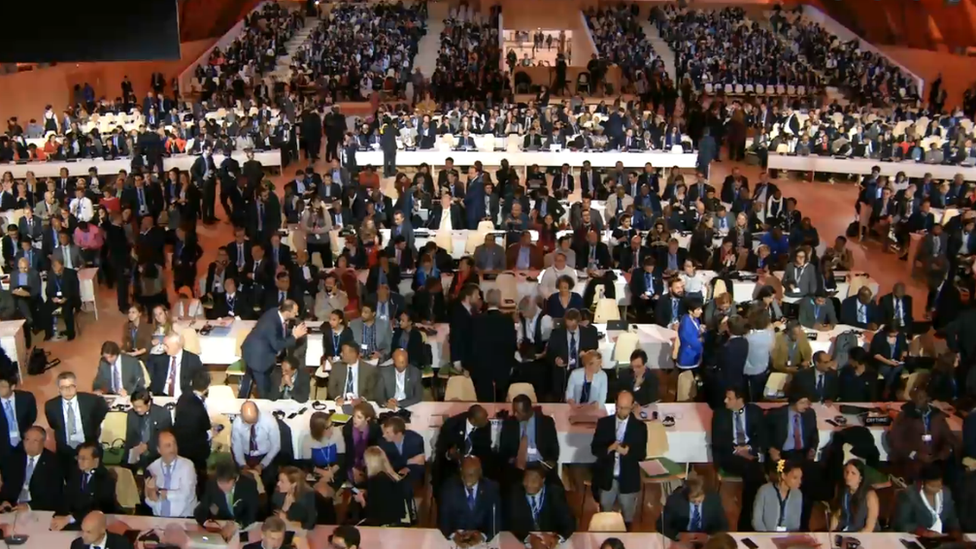
- Published30 November 2015
- Published29 November 2015
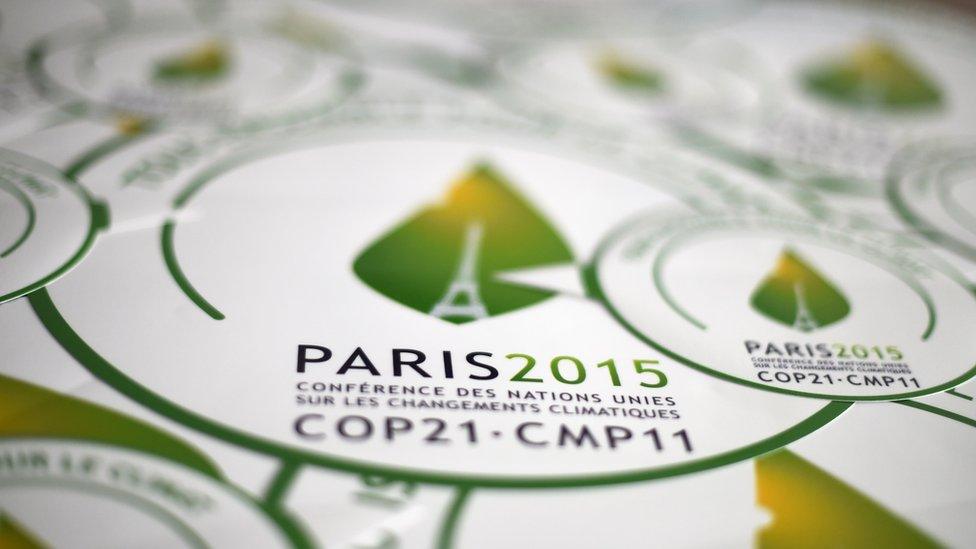
- Published25 November 2015
